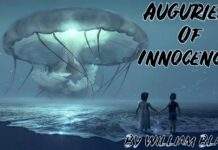Critical Appreciation of ” That Morning”By Ted
Introduction And Critical Appreciation
In his initial life, Ted Hughes chased little games and went fishing with his sibling. Through going to fields and waterways in the wide-open he turned into an eager onlooker of the characteristic world. He offers voice to the extraordinary battle between the tracker and the pursued, the human and the awesome in his sonnets. Creatures show up every now and again all through his work: as god, similitude, persona, and symbol.
In ‘That Morning’, Hughes starts with a great scene of a rich fortune of salmon in a waterway encompassed by mountains and in the early morning haziness of South Yorkshire. The fishing trip transforms into a visionary encounter for the writer. Seeing fish fills the writer with the divine light of gift. He went to the spot for slaughtering fish yet the heavenly light leaves him a visionary who is all adoration and delicacy for the creature, the salmon with its silver scales transmitting the wonderful awesome light.
On the opposite side, the sonnet gives a brief look at creature conduct and its instinctual savagery. Two bears show up out of nowhere and approach the artist. To the writer’s absolute awe, they plunge and take salmon for food tearing at it savagely. Presently the two restricted sentiments of delicacy and savagery develop one next to the other.
‘That Morning’ manages the subject of the reasonable man and the creature man. Both man and creature chase for food. This is the thing that creature drives request yet above creature drives the man is talented with scholarly, otherworldly, and moral status. There are events when man transcends the degree of fundamental or essential drives and tunes in to his internal voice and afterward, he ascends to the inventive status of the crown of creation.

Critical Appreciation of ” That Morning”By Ted
The sonnet ‘That Morning’ is the artist’s excursion into the universe of vision. Obviously, we see him in a fishing effort however seeing an influencing mass of fish with the silver shine of scales goes him to take a gander at the fish in a serious diverse manner. The silver shine of the salmon gets divine light and magnificent euphoria. The murdering binge changes into empathy and wonder before the magnificent making of Almighty God.
The vision of light carries attention to the reality of empathy. The light of the salmon uncovers pity in the writer’s psyche and he feels that his standing midsection profound is a sacrosanct custom for cleansing his spirit of all brutality and tainted idea. He feels that on the off chance that he speculates the celestial light, he may lose all happiness. The wealth of fish is a frightening sight for him and he is confused by the limitless imaginative influence of nature.

The end part of the sonnet takes the peruser to creature conduct. There he sees two lovely bears who unexpectedly show up on the site where the writer is still profoundly engaged with the spiritualist idea of heavenly imaginative power. The bears swim near the writer. They remain in profound water. They jump energetically and execute salmon for food. They get fish, tear it and eat it. They are just keen on fulfilling their craving and they, while eating, are very apathetic regarding everything around them.
The rhyme-conspire is an eccentric yet mood gadget and a few lines go through three to four refrains. The peruser can follow similar sounding word usage:
‘Till the world had appeared overturning gradually ‘Midsection somewhere down in wild salmon influencing massed’
He additionally utilizes the gadget of redundancy of words:
‘That went ahead, went ahead, and continued coming’.
Here the reiteration of words makes a wonderful audio cue as well as accentuates the gigantic float of salmon and their expanding number. Metaphor is likewise there, The bears swim like men. They plunge like kids. Utilization of designation loan importance, magnificence, and stream to the articulation of thought; ‘inward guide’, ‘dingy nightfall’, ‘drumming-float’, ‘dust light’, ‘questioning idea’, ‘a soul signal’, ‘the measured hands of mountains’ are instances of Hughes specialty of versification. The artist doesn’t specify his catch of salmon anyplace in the sonnet. His ‘get’ most likely is ‘sympathy’ that he reclaims home.
Critical appreciation “Full Moon And Little Frieda” By Ted


























